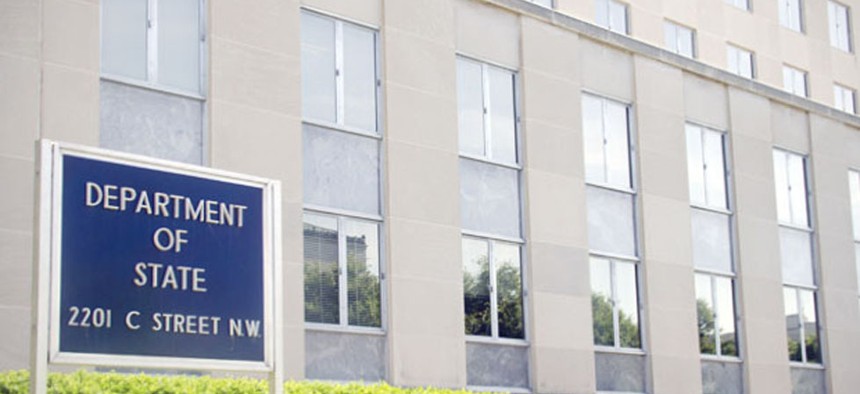
Sarah Scully/GovExec.com file photo
Group Wants White House to Release Documents on Ambassadorial Nominees
Association had threatened lawsuit against State Department in dispute over qualifications of those serving in high-level jobs overseas.
The union of retired Foreign Service officers, having threatened to sue the State Department under the Freedom of Information Act, has received information that it sought for sometimes-controversial Obama administration ambassadorial nominees. But it has decided that the White House should be the one to make the documents public.
The American Foreign Service Association in February joined the fray over nominees, whom some say were picked more for their donations to the Obama reelection campaign than their knowledge of the host country, by releasing long-in-the-works guidelines for improving the selection progress and raising the bar for selection of chiefs of mission overseas -- be they Foreign Service officers or private-sector professionals.
But the administration appeared to delay in processing the association’s July 2013 and February 2014 requests for what’s known as “certificates of competence” for all nominees. AFSA later expressed particular concern over the nominees picked to serve in Norway, Hungary and Argentina.
On March 5, AFSA’s governing board voted to instruct its general counsel to file suit in U.S. District Court to compel the State Department to release the certificates if it did not do so by the close of business on March 6. “AFSA calls on the State Department and the administration to make public all certificates of competence for chief of mission positions, consistent with the principles of openness, transparency and good governance,” the resolution stated. “Pending receipt of these certificates of competence, AFSA will send letters to the Senate and the White House expressing concern that the recent nominations for chief of mission positions in Norway, Hungary and Argentina appear to be based primarily on their status as financial contributors to political campaigns, which is in violation of the Foreign Service Act of 1980.”
State Department spokeswoman Jen Psaki told reporters on March 7 the department had fulfilled the first AFSA request from July 2013, but had not had time to process the second because the department receives as many as 18,000 FOIA requests annually. The day before, Psaki spoke to the controversy more broadly: “The administration looks for qualified candidates who represent Americans from all walks of life and who show true zeal for serving their country, and we’ve received interest and recruited talented people from all across the country and all kinds of professional backgrounds, whether they are Foreign Service -- they proceed through a different process, there, of course, but political appointees who may be from the business sector, who may be from a public service sector,” she said. “We feel that this kind of diversity helps represent who we are and the United States around the world.”
AFSA spokeswoman Kristen Fernekes told Government Executive that the group “actually wanted to get the documents -- we didn’t want to sue State. What we have been doing is reviewing them, and have actually continued conversations with the White House and Capitol Hill. We’re holding off on doing anything else while asking the White House to put them out.”
The association, she added, does not want its tactics to be seen as “an attack on some particular nominee or administration.” It wants the documents released as part of a process in which “we think everyone can benefit.”
Neither the White House nor the State Department would comment beyond Psaki’s March 7 remarks.







